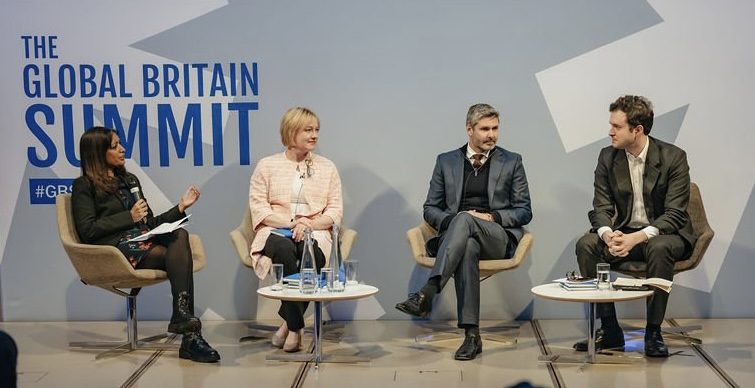Why we need continuous innovation and experimentation in development.
Feb 16, 2023
The Global Innovation Fund was established as an impact-focused, venture-style investment vehicle, designed to be able to support the rigorous testing and scaling up of innovative solutions to problems faced by the world’s poorest people. As such, innovation and experimentation – exploring and learning about what works and what doesn’t – have been at the core of GIF’s philosophy from the very beginning.
GIF CEO Alix Zwane recently spoke at the Global Britain Summit organised by Coalition for Global Prosperity. The aim of the conference was to explore how Britain today can continue to be a leading force of good in the world.
As part of a panel including David Beer from TradeMark Africa and Anthony Mangnall MP, Alix discussed whether we still need innovation and experimentation in the development investment space. Surely, with certain development problems such as food scarcity, we know what to do by now and should just get on with it?
Alix explained that we often know far less than we think we do about ‘what works’. She reminded the room that, whilst a lack of complete knowledge should not stop us from scaling solutions that have strong evidence of success, further testing is often vital for ensuring that solutions work as we expect them to, and are as resource-efficient as possible, since development funding is limited.
Alix used GIF’s investment in No Lean Season as an example. This was a programme that sought to increase food consumption and income of poor rural households by offering small travel subsidies to encourage agricultural workers to migrate to urban areas during the period of the year when demand for agricultural wage labour falls. The idea was that even those who stayed behind would benefit from higher wages due to a relative scarcity of labour.
In 2017, we provided a grant of $2,571,210 to support the rigorous testing and evaluation of the programme at scale in Bangladesh.
The programme was already backed by evidence, including a series of randomised controlled trials (RCTs) carried out in Bangladesh between 2008 and 2014, which demonstrated positive welfare gains for families at risk of famine as a result of the take-up of seasonal migration. Gains included an increase in calorific intake of between 550 and 700 calories per person per day. Click here to read more about these trials.
However, the 2017 RCT supported by GIF found that the programme did not have the desired impact on inducing migration. Evidence Action emphasised the importance of continuous testing and experimentation in this blog post. The key takeaway: if No Lean Season had been scaled without first testing at scale, the impact from previous smaller-scale studies could have been inappropriately imputed to a larger, real-world setting, in which the impact would differ substantially.
The case of No Lean Season highlights the need for continuous innovation and experimentation, rather than assuming that we know everything we need to about solving development issues just because there is existing evidence supporting certain solutions in certain settings.
Alix emphasised that the lesson to be learned from No Lean Season is not that migration subsidies do not ‘work’, but rather that the science of scaling is a journey, not a destination.
On this particular journey, we learned, amongst many other things, that delegating to others the task of expanding a programme carries risk, since those charged with recruitment may focus on recruiting as many reachable people as possible, rather than on onboarding those most likely to benefit. This is because a common success metric for microcredit organisations is maximising the number of loans given. In the case of No Lean Season, this led to subsidies mostly reaching those who would likely have migrated anyway. Read more about insights gained from No Lean Season here.
Such insights can now be used to inform future solutions and decisions in this space. The key takeaway is that without continuous innovation and experimentation, we would not have gained the valuable knowledge that we did, which can now be used to make more informed decisions in this space in future. This will allow development funding to achieve the greatest impact possible.
We must continue to scale and learn iteratively.
